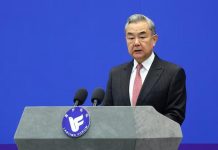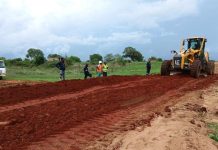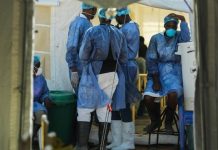Africa-Press – Mozambique. The international non-governmental organisation Friends of the Earth is challenging the legality of the British government’s financial support for the Liquefied Natural Gas (LNG) project in the northern Mozambican province of Cabo Delgado, arguing that it is incompatible with the government’s commitments under the Paris Agreement on climate change.
In July 2020, the UK Export Finance (UKEF) credit agency agreed to provide over one billion US dollars in support through loans and guarantees for the Mozambique LNG Project which will build natural gas liquefaction plants on the Afungi Peninsula using gas from Rovuma Basin offshore Area One.
The French oil and gas company, Total, is the operator with its partners coming from Japan, India, Thailand, and Mozambique. When operational, the project will produce 12.88 million tonnes of LNG per year for domestic consumption and export.
On Tuesday, the High Court in London began a three day hearing over allegations by Friends of the Earth that UKEF’s decision to support the project was unlawful and was based on fundamental errors.
However, James Eadie QC, representing the government, argued that the analysis by UKEF noted that there would be a significant impact in terms of increased greenhouse gas emissions, but that other factors including the benefits to British businesses and the transformational economic benefit to Mozambique were also taken into consideration.
One of the key issues is whether natural gas is a transitional fuel, replacing more polluting fuels such as charcoal, coal, and diesel.
On its website, UKEF acknowledges that the project will result in significant direct and indirect greenhouse gas emissions and notes that the largest source of emissions will be caused by the end-use of the gas. But it goes on to point out that “the potential for gas from the Project to displace or replace both heavier and lower carbon fuels was considered as part of the environmental, social, and human rights review. It is considered that over its operational life, the Project will at least result in some displacement of more polluting fuels, with a consequence of some net reduction in emissions”.
However, this claim of an overall net reduction of emissions is not accepted by Friends of the Earth, which estimates that the emissions from burning the gas will be “around 116 million tonnes of carbon dioxide a year: equivalent to the total emissions from the aviation sector for all European Union member states combined”.
Friends of the Earth also takes issue with those that argue that the gas in Cabo Delgado will transform the economy of Mozambique. Tony Bosworth, climate campaigner at Friends of the Earth, told AIM that “clearly, the mega-gas projects that have sprung up across the Cabo Delgado won’t benefit the people of Mozambique”.
Bur what “mega-gas projects” is he talking about? None are currently in production. A floating liquefied natural gas platform, built in a South Korean shipyard, is on its way to the Mozambique Channel, but will not start producing LNG until the middle of next year.
As for the Total project, work at Afungi depends entirely on improvement in the security situation. Other LNG projects are far in the future.
Bosworth added that “the need to slash climate-wrecking emissions fast is a global one, which is why wealthy countries like the UK need to help those at the sharp end of the climate crisis by funding renewables, starting now”.
Not everyone agrees that the gas will not benefit the people of Mozambique. According to the African Energy Chamber, a South African based group linked to the energy industry, “the impacts of the Mozambique LNG Project cannot be overstated. From creating tens of thousands of jobs for the local community to improving energy access across the region, the project has the potential to lift millions out of poverty and drive sustainable socio-economic growth for decades to come. For a country with only 30 per cent of its population with access to electricity and increasing demand within the wider region – particularly in countries such as Zimbabwe and South Africa both of which are experiencing their own electricity crises – the project represents a turning point for southern Africa”.
Friends of the Earth has offices in some of the most polluting countries in the world, yet is campaigning against an energy project in one of the countries with least responsibility for the climate crisis.
If it really wants meaningful action from the British government, it could fight to end plans for new coal mines, scrap airport expansion and take strong measures to remove private cars from British roads.
For More News And Analysis About Mozambique Follow Africa-Press






